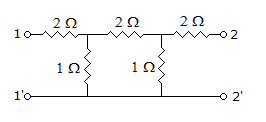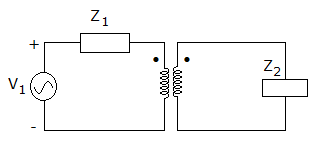ECE :: Network Analysis and Synthesis
-
When a lead acid battery is fully charged the colours of its positive and negative plates are
-
Two independence parameters Z11 and Z12 of the two-port network in the figure are

-
Network transients are due to
-
In a loss-free R-L-C circuit the transient current is
-
In the network of figure it is desired that maximum power be supplied to Z2. The values of Z1 and Z2 are fixed. However the transformation ratio 'a' of transformer can be changed. The value of 'a' for maximum power transfer is

-
The magnitude response of a normalised Butterworth low pass filter is
-
In steady state condition inductor behave as
-
Assertion (A): Charge is dual of flux.
Reason (R): Short circuit is dual of open circuit.
|
A.
linear starting with value of unity at zero frequency and 0.707 at cut off frequency
|
|
B.
non linear all through but with values of unity at zero frequency and 0.707 at cut off frequency
|
|
C.
linear upto cut off frequency and nonlinear thereafter
|
|
D.
nonlinear upto cut off frequency and linear thereafter
|


 Whatsapp
Whatsapp
 Facebook
Facebook


 , then f(t) =
, then f(t) =